2025 Plaskett Award Winner – Claire Drummond
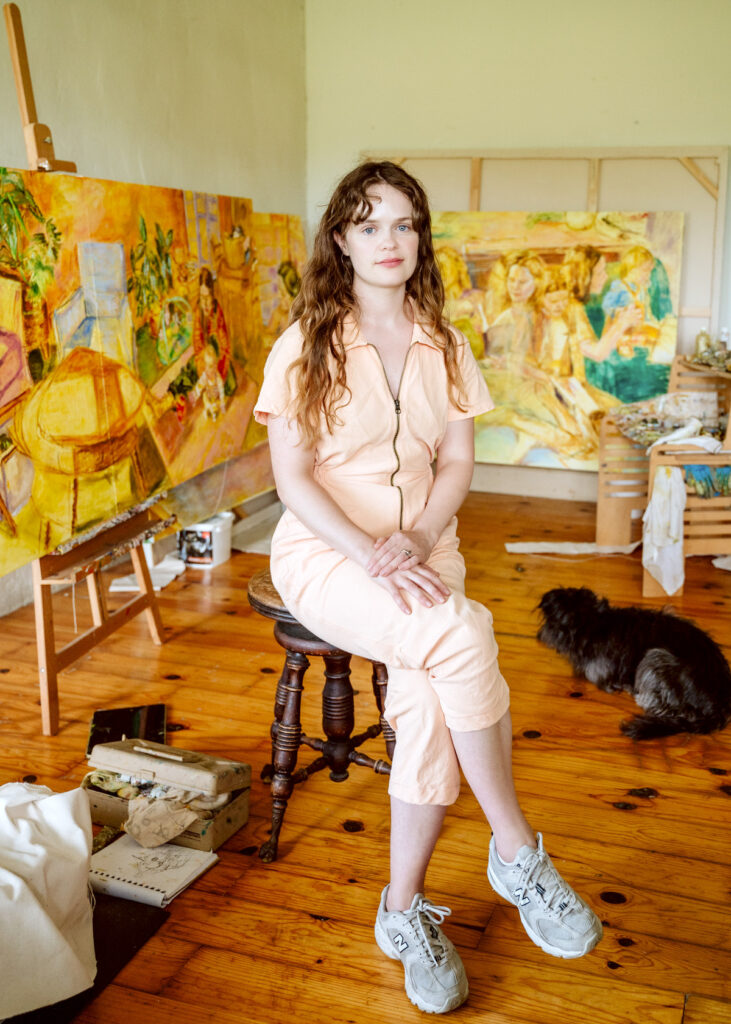
studio with Phoebe.
Photo credit: Natalie Goulet.
Originally from Elgin, Quebec, Claire Drummond completed her Master of Fine Arts at the Nova Scotia College of Art and Design (NSCAD) University in Nova Scotia. In her paintings, Drummond aims to challenge the belief that art that focuses on maternity and domesticity is aesthetically inferior and politically inconsequential. Her current practice focuses on self-portraits that explore her embodiment as she contemplates becoming a parent, as well as portraits of artists/m(others), a term that includes queer and gender nonconforming folks who identify as being engaged in sustaining life. In her work, paint is handled in a deliberately hasty fashion; her incomplete and repeated figures reflect the fragmented and interrupted conditions of art-making demanded of parental caregivers.
The Plaskett Award jury found that a sense of community and connection emerges from Drummond’s works, along with a fearless commitment to a different kind of criticality. They also were impressed by the distinctive brushwork and colour palette, bringing a sense of intimacy and touch to the works, with her series The Waves—a painterly exploration of matrescence borrowing its title and conceptual approach from Virginia Woolf’s lyrical novel—especially standing out for its use of colour and composition. In some self-portraits, the combination of painting and drawing, with unfinished or repeated motifs, expanded the feeling of movement and the passage of time.
The award will allow Drummond to spend time in Edinburgh, Scotland, to grow her artistic practice and reconnect with the Scottish heritage of both her great-grandmothers, with the potential support of a residency at the Spilt Milk Gallery, one of the few social enterprises in the world that is dedicated to making m(other)hood visible. Once in Europe, Drummond will visit London, Paris, Florence and the Vatican to deepen her understanding of the evolution of maternal visual history, focusing on idealized icons of the Madonna, Charity, Niobe, and the Angel in the House spanning the 3rd to 19th centuries. These references, combined with archival imagery and Celtic mythology, will serve as a starting point for a new corpus of works subverting inherited narratives of maternal memory and mythology, in order to better represent the interdependence and vulnerability of contemporary human experience.
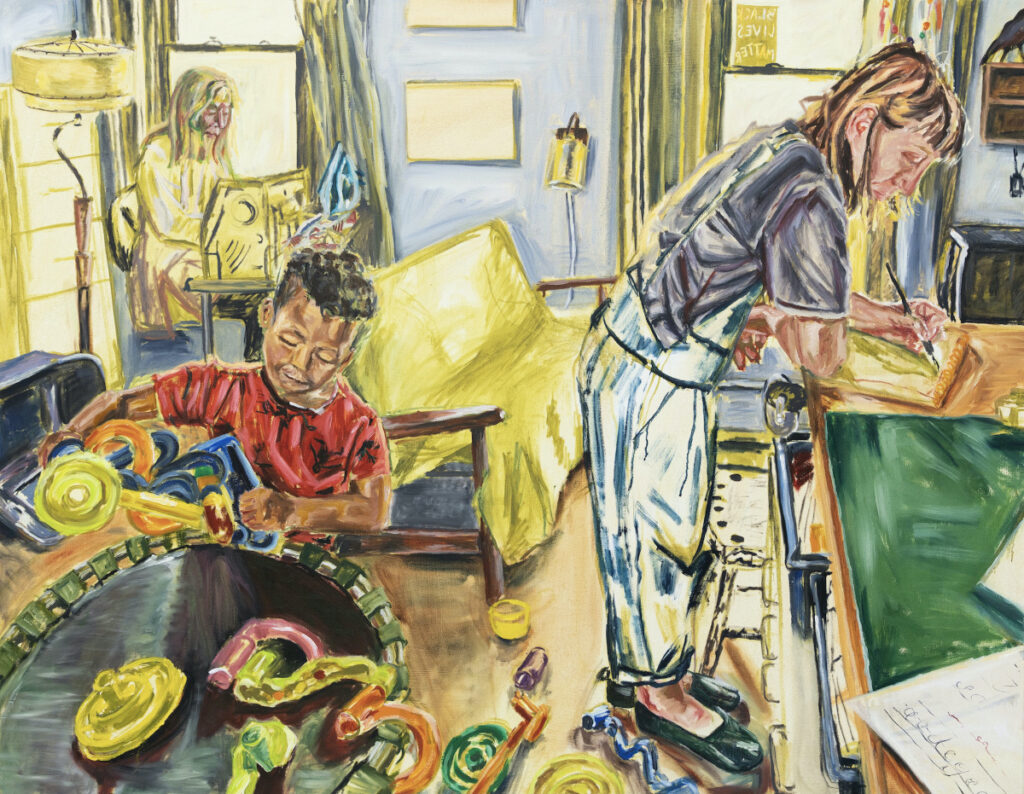
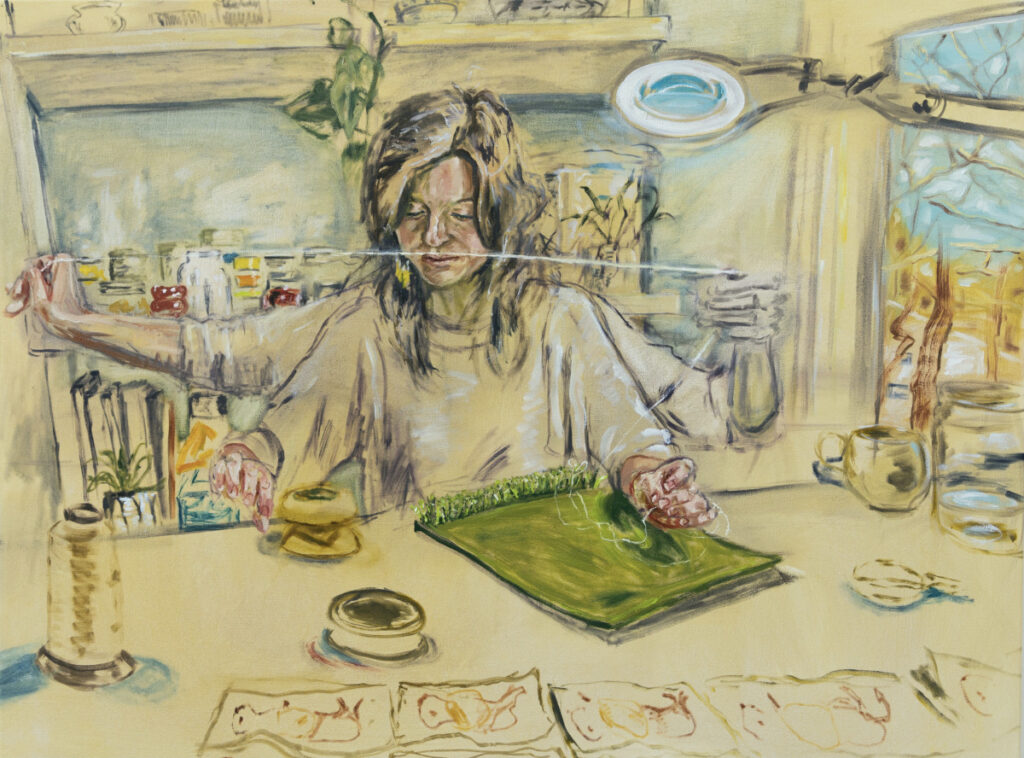
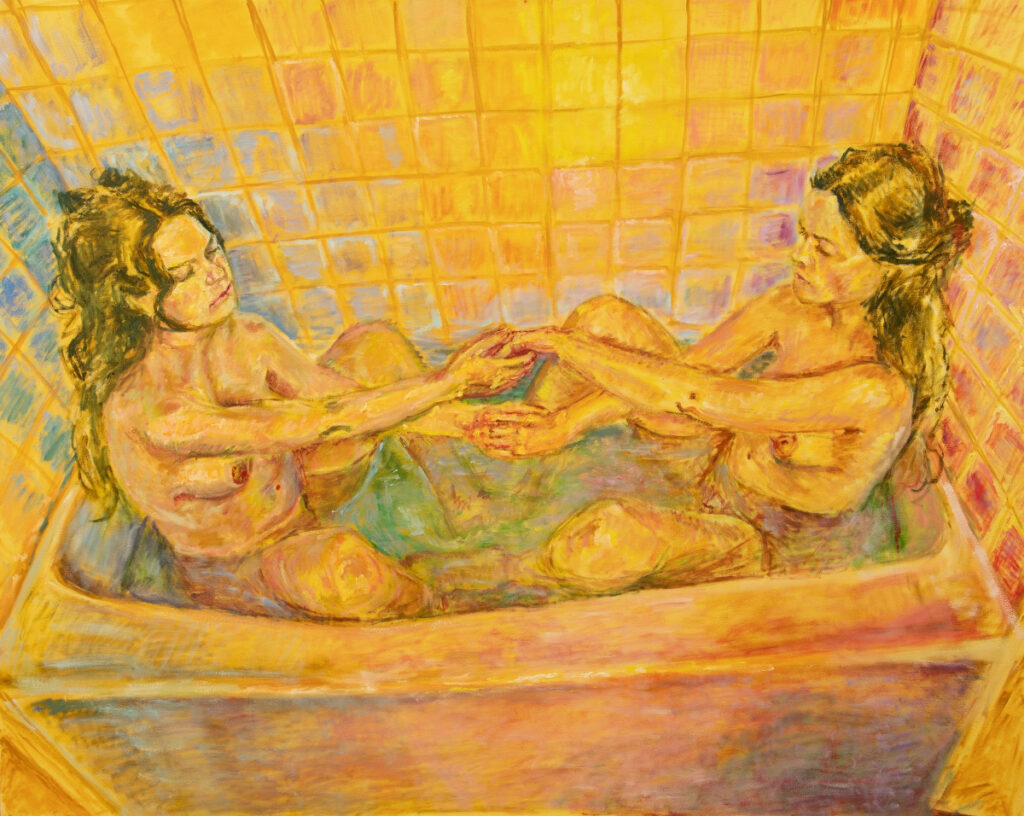
Complete titles:
Image 1: Back to the shape of my family with my partner and more broadly queer family… we’ve spent time considering what people’s roles are and what they do and I think that helps us notice and give appreciation about care, because it’s like, I asked for this kind of care, then you gave it to me, and then I said thank you
Image 2: I guess I didn’t really think that having a kid would really affect my practice in the way that it has, like I didn’t think I would be so obsessed with him and my feelings towards him or my feelings towards this new reality of being a parent
2025 Plaskett Award Runner-Up – Natasha Verbeke
The 2025 Plaskett Award Jury and the Joe Plaskett Foundation would like to recognize the exceptional high-quality application of 2025 Plaskett Award Runner-up Natasha Verbeke, by awarding her a symbolic prize of $2,500 to support the development of her artistic career. The runner-up receiving this prize remains eligible to apply to the next instalment of the Plaskett Award in 2027, provided she still meets the eligibility criteria at that time.
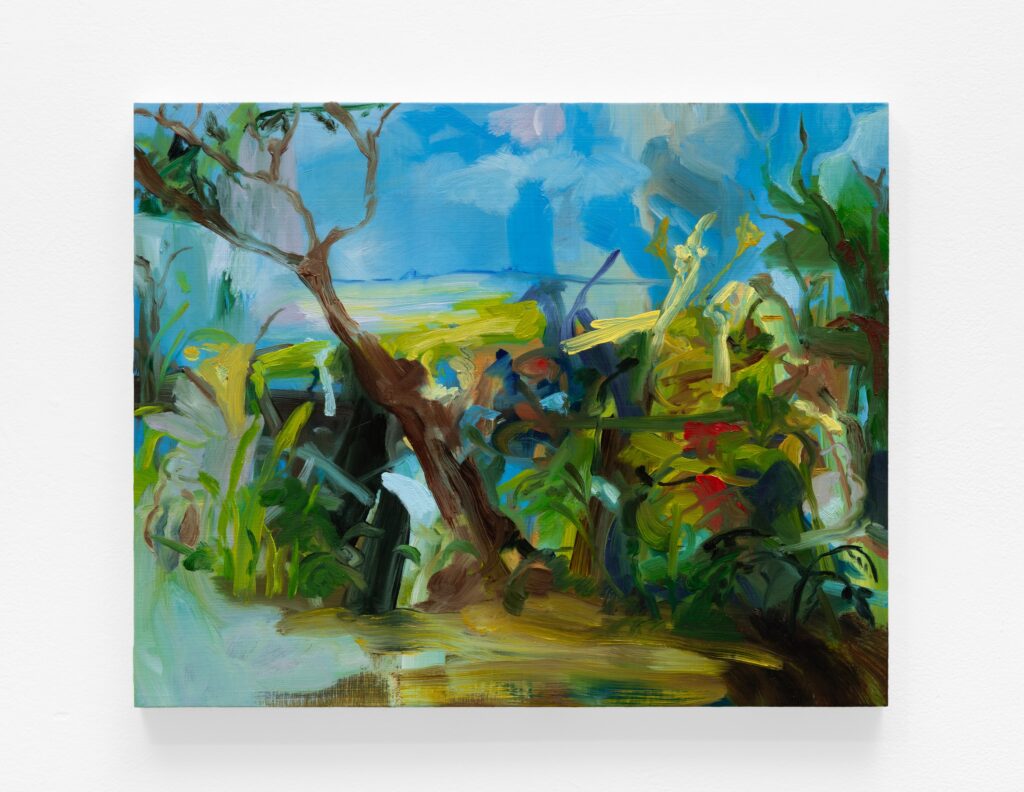
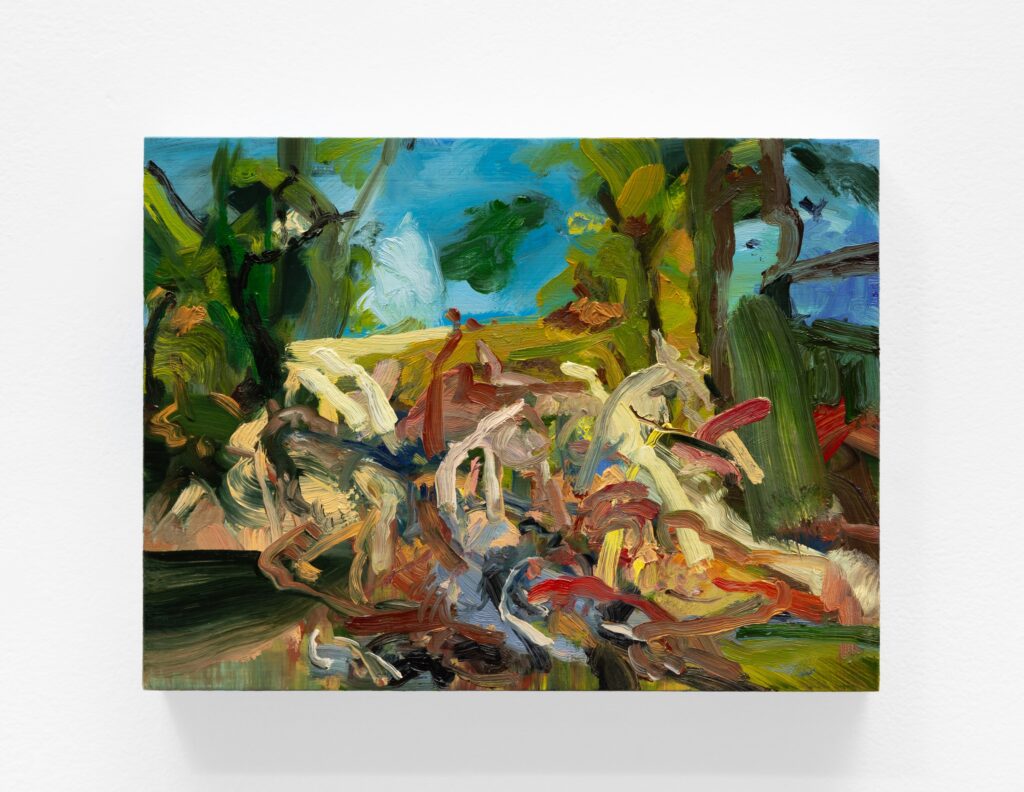
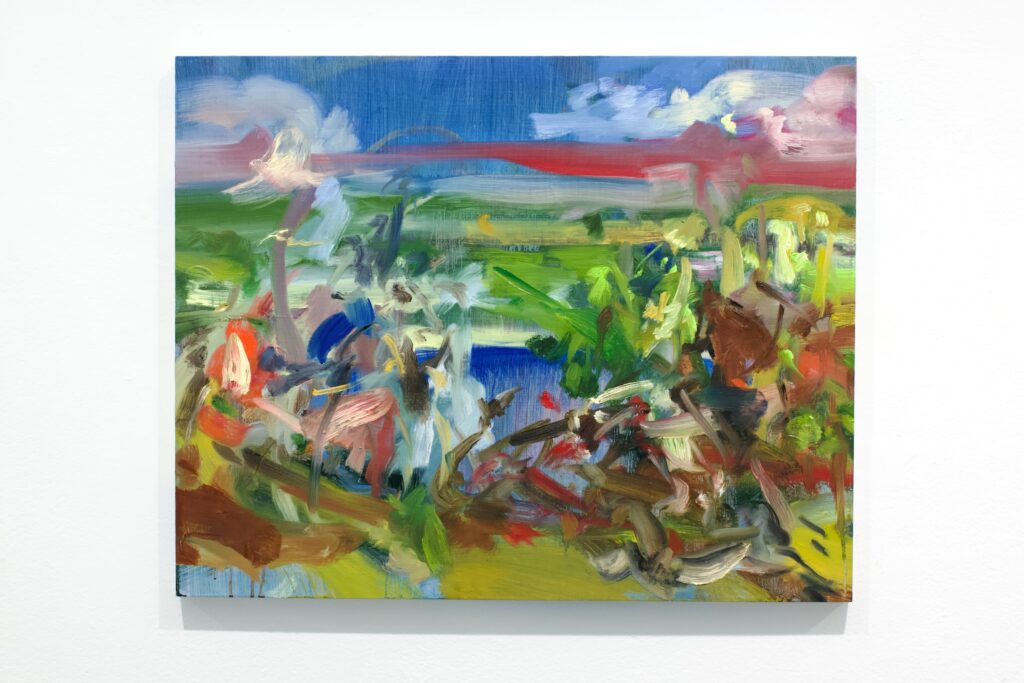
Natasha Verbeke holds a BFA from NSCAD University and recently obtained her MFA from the University of Guelph. Her painting practice engages critically with the Western canon of art, particularly from the 17th to 18th centuries, to examine how images have historically upheld systems of violence, dominance, and exclusion. Most recently, her work has focused on gardens and landscapes, and how their often violent histories of creation and occupation can be reimagined as sites of hope and renewal. Her work subverts the power dynamic or violent act depicted in reference images by fragmenting the appropriated figures and playing into gestural and embodied paint application. By disrupting subject matter from its original context, she reconfigures fixed narratives, allowing historical fragments to take on new meaning in an evolving present.
